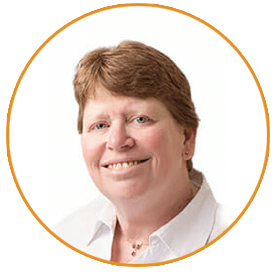Working hours
Mon - Fri: 8am to 5pm
Mon - Fri: 8am to 5pm
Share
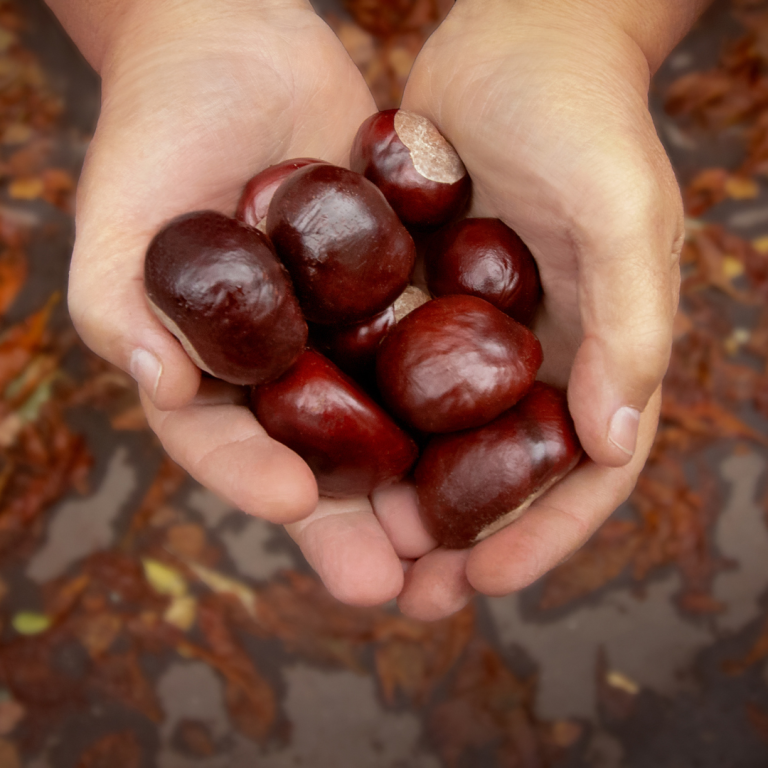
How can we make maths feel natural, exciting, and totally doable in everyday moments? Too often maths gets boxed into “counting time” or “number corners” and ends up being something people feel nervous about, but research and practice tell us that babies and toddlers are doing maths all the time if we let them.
They count in songs, steps, and games, understand “how many” through cardinality, solve problems (“How many more do we need?”), and recognise numbers in the environment.
Everyday play offers early experiences with sharing, halving, and comparing, the foundations of problem-solving and fractions.
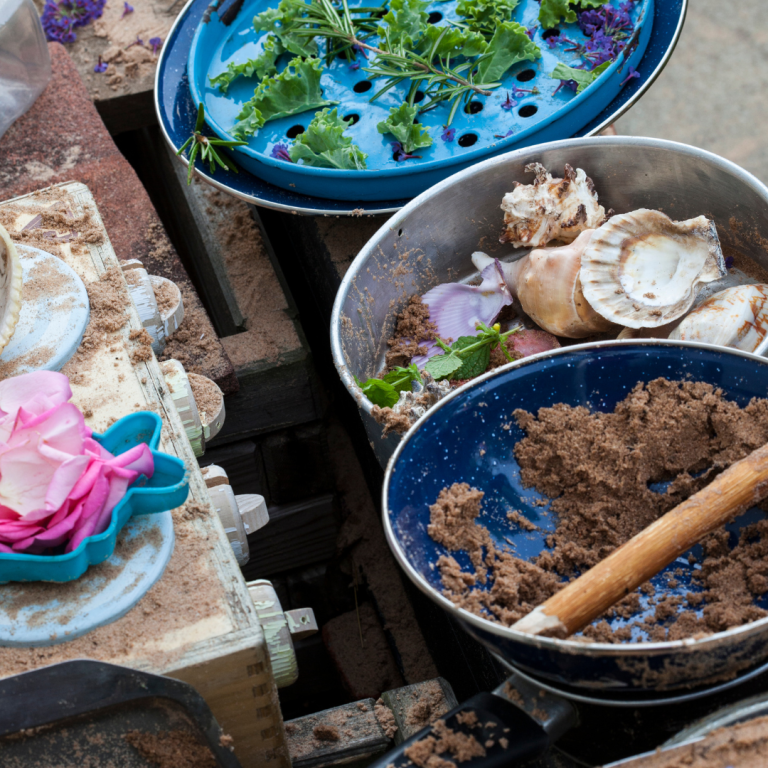
Concepts of size, weight, and capacity emerge as children pour, fill, and compare. Time and sequence come alive through sand timers, routines, and talk about what comes before or after. Sorting sticks by length or using balance scales helps children make sense of mathematical ideas through hands-on exploration.
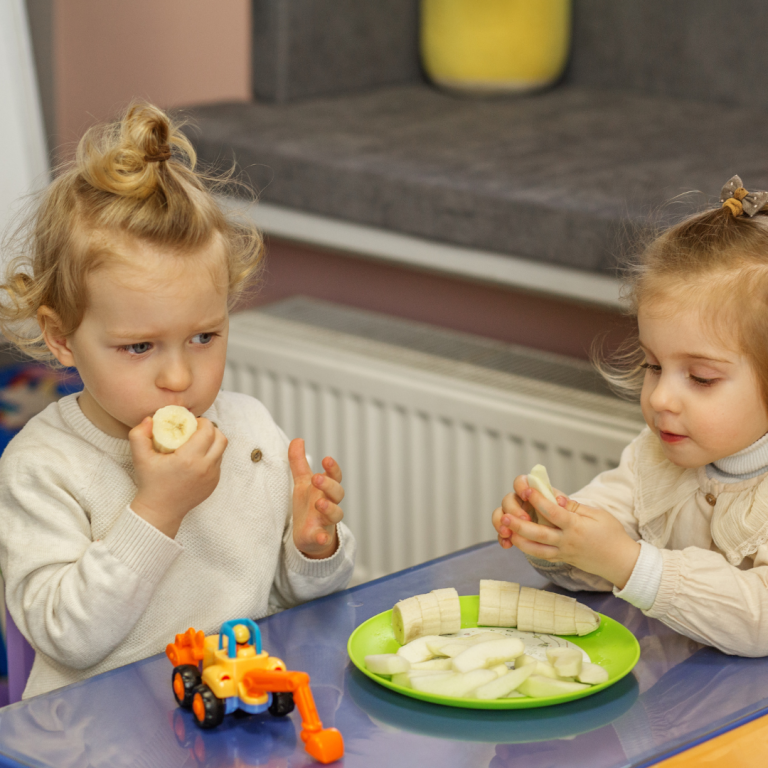
Even without telling the time, children grasp temporal ideas through daily life. Routines like “first snack, then garden”, or noticing “the days are getting shorter”, build their sense of sequence and pattern over time.
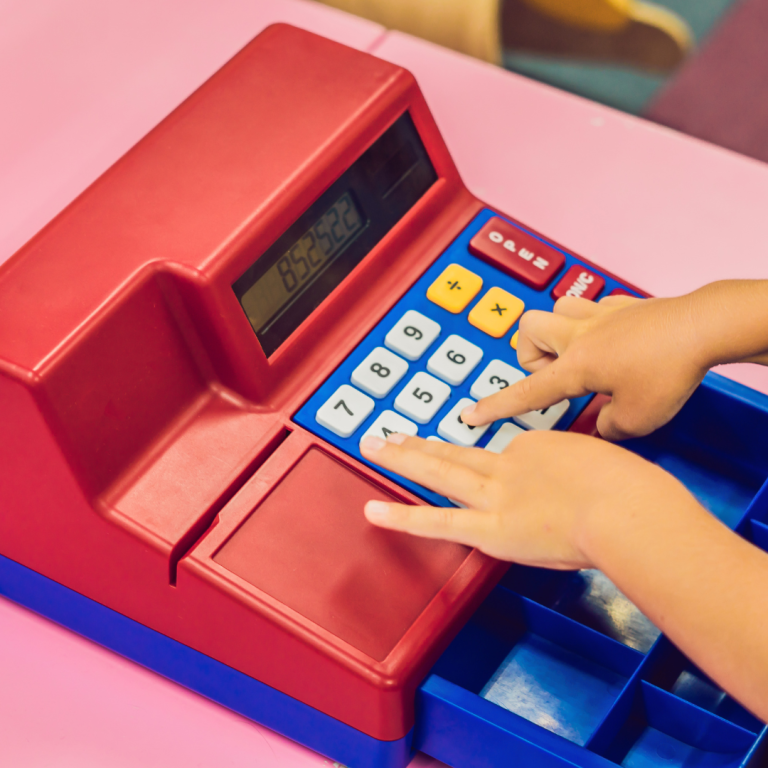
Money becomes meaningful through real-world role play. Whether running a café, a shop, or a builders’ yard, children handle coins, discuss prices, and use everyday language such as “costs” or “less than” turning abstract ideas into practical understanding.
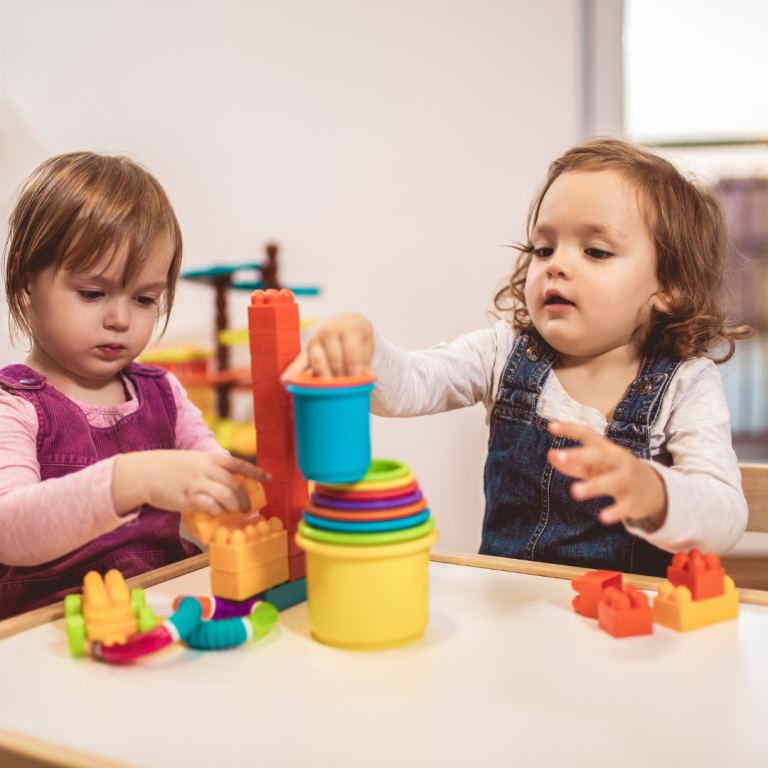
Shape and space underpin so much of children’s design, creativity, and language. Encourage them to build, map, and describe using positional words like “under,” “next to,” or “on top of.” Rotating, stacking, and arranging shapes not only develops spatial reasoning but also expressive language.
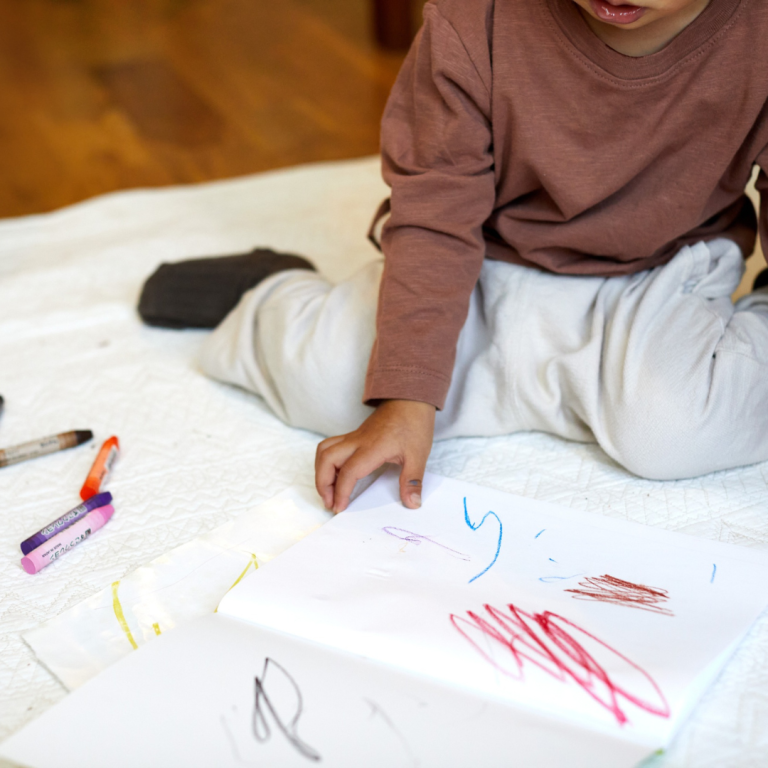
Recording and representing ideas is an early step into abstract thinking. Whether it’s tallying favourite fruits or drawing “how many puddles we jumped in,” early mark-making shows real mathematical understanding.
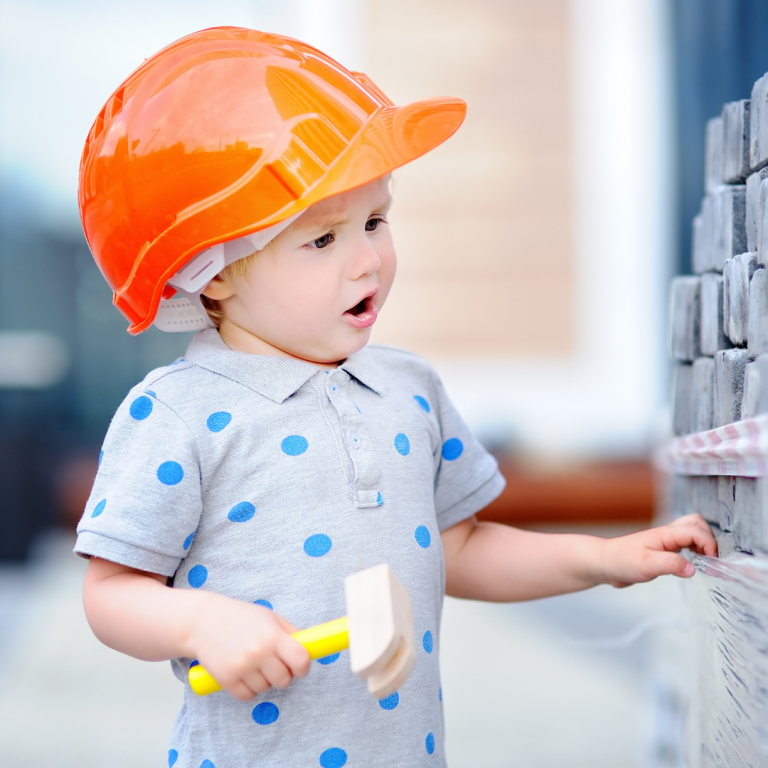
Maths becomes meaningful in context. from measuring in the builders’ yard to writing café receipts. Embedding real tools and authentic dialogue “That’ll be £2 please” bridges imagination and practical learning.
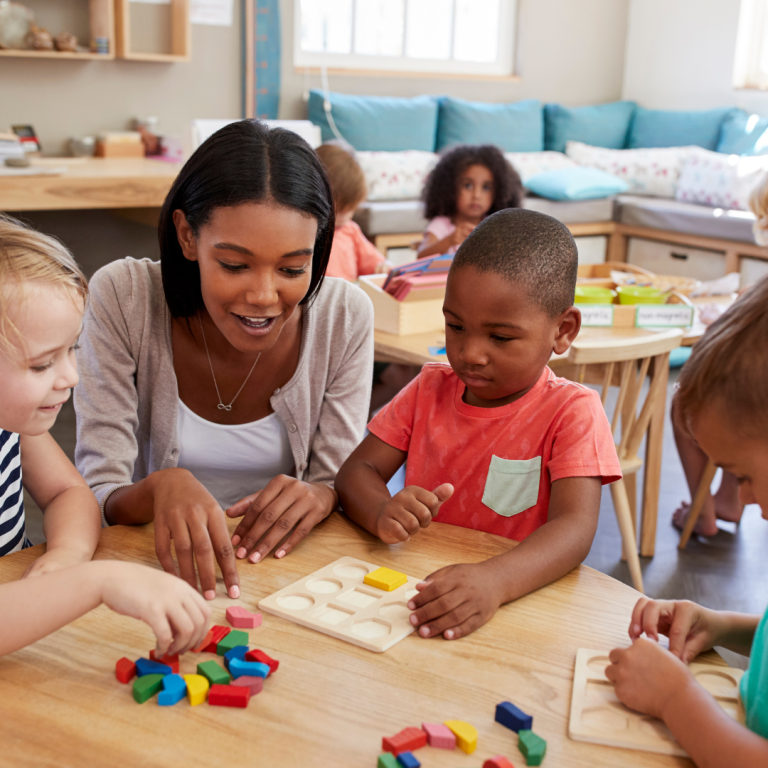
Even the most passionate practitioners can face challenges when it comes to early maths. Here are three of the most common barriers we hear and how leaders can help overcome them:
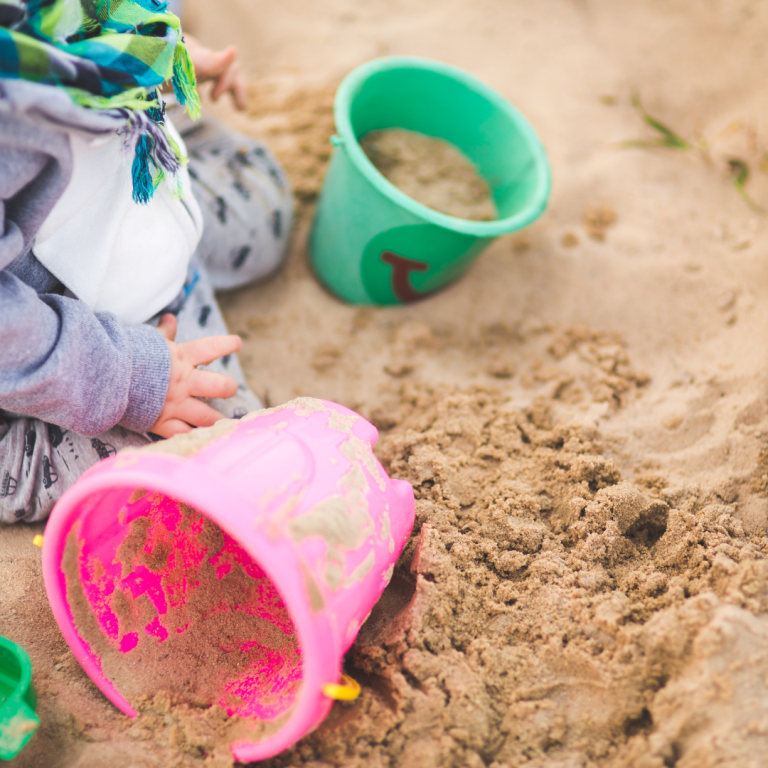
Maths in early years doesn’t have to be scary, formal or beyond reach. It is already there; in babies’ attention, in toddlers’ comparisons, in children building blocks and patterns.
As leaders, your voice, your values, your support can make maths feel natural, joyful, and inclusive. Give your team permission to try, to explore, to make mistakes – as they do, children will too, visibly learning, loving it, and growing.
Want to feel more confident bringing maths to life in your setting?
Need fresh ideas to enrich your provision and empower your team?
Our Little Minds Big Maths Workshop is packed with practical, play-based approaches that help practitioners make maths meaningful from the very start. You’ll discover how to spot mathematical thinking in everyday play, build on children’s natural curiosity, and create rich learning experiences for ages 0–5.
Find out more and book here
Evie Arnold is a Gallup Certified Strengths Coach and Positive Intelligence® Coach. Her career in the early years sector started over 20 years ago, from opening her own setting to supporting nurseries as Early Years Quality Advisor she focuses on helping leaders navigate the complexities of performance, safeguarding, and compliance while fostering cultures of care and collaboration.

With the ever-changing regulations and guidance, sign up to our monthly newsletter and mailings to stay current and keep up to date with running your childcare setting.
Simply enter your details below to join our mailing list.
By completing this form you are agreeing to our privacy policy You can unsubscribe at any time
